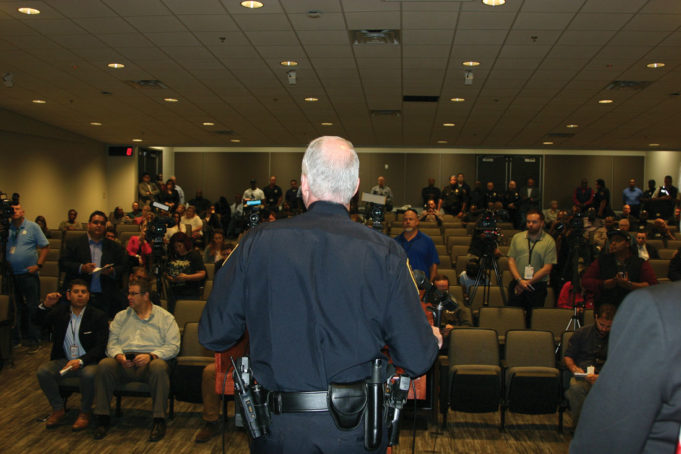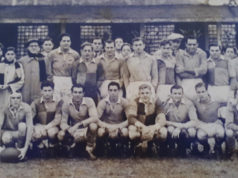The district attorney is saying zip about Atatiana Jefferson. Residents, though, are wondering just how aggressive prosecutors will be in court and whether a white cop will escape serious repercussions for killing an innocent black person.
The Fort Worth police officer who shot and killed Jefferson in her home on October 12 quit his job before he could be fired –– and before making a statement. Tarrant County prosecutors have never sought a murder conviction against a police officer but are now. Aaron Dean lawyered up early, perhaps realizing his trigger-happy move might result in serious consequences despite a long nationwide history of police officers dodging consequences for maiming or killing innocent people.
Two weeks earlier, a Dallas jury had handed former Dallas police officer Amber Guyger a 10-year sentence in the shooting death of an innocent man sitting in his apartment. Dean, who became a cop in 2018 in his mid-30s, went to a home where a neighbor had reported the front door was open. Dean went to the front door but didn’t knock or appear to announce his presence and then walked around the house, saw Jefferson through a window, and shot her dead. Despite Tarrant County prosecutors seeking a murder conviction, some local activists are concerned that Dean, like many officers before him, will walk free or receive a light sentence. One thing in particular worries onlookers –– the involvement of the district attorney’s Law Enforcement Incident Unit, a special group composed of three members, all of them former police officers.
The unit chief is Robert Huseman, who is joined by Timothy Gilpin, an assistant criminal district attorney, and Marvin “Mo” Brown, an investigator. We asked the DA’s spokesperson, Samantha Jordan, whether the unit will be involved in Dean’s case, but she wouldn’t say.
“A gag order has been issued by the judge in this case,” she said. “We cannot discuss these matters.”
District Attorney Sharen Wilson formed the unit after Tarrant County voters elected her to office in 2015. The unit would seek to “standardize the method of reviewing law enforcement incidents countywide,” Jordan said.
The unit reviews cases that involve police shootings, deadly force incidents, and deaths in law enforcement custody. Unit members have received specialized training beyond that of most prosecutors in the office, Jordan said.
“Their additional training, expertise, and experience are of assistance to the grand juries in their inquiries into these incidents,” she said.
That sounds like cops investigating cops, which is a big turn-off to many members in the community. Jordan, however, said the unit’s members do not conduct initial investigations on cases. Instead, they assist prosecutors by working with victims and witnesses and bringing evidence to court.
One of the members serves on the board of directors of the Fort Worth Police Foundation, the nonprofit group founded in 1981 to “recognize and promote the professionalism and excellence of the Fort Worth Police Department,” says its website.
How cozy.
The DA doesn’t see a problem with that, either.
“We do not find a conflict between praising those who do outstanding work and prosecuting officers who break the law,” Jordan said













This cop made a fatal mistake, and however you look at it, it was murder. He did the crime, now you know what comes next.
Tarrant County government is racist to its core.
LMAO, ex-cops covering (“prosecuting”) for current cops? Are you kidding me? Way to go, Sharen Wilson. Your office continues to be a joke. This is just terrible for any victims or family of victims in these cases.
Some ex-cop who sits on the board for an FWPD organization is the guy who is called on to prosecute or not prosecute a cop that gets into hot water! Someone has lost touch with the times. I’m looking straight at you, Mrs. District Attorney.